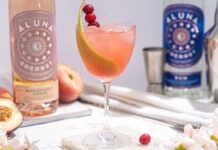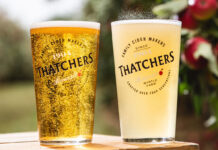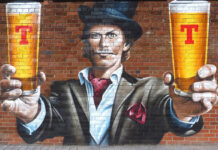
Drinks firms upping their game when it comes to low-ABV variants
WITH Scottish Government legislation to reduce the drink-drive limit coming into force last Friday (Dec 5), now may be a good time for publicans to reassess their low ABV and alcohol-free drinks range.
Operators may be in luck, as drinks firms claim there have been significant improvements in the category in recent years, driven by demand from an increasingly health conscious public.
Non-alcoholic beer has made significant strides in recent years, and could have a bright future in the on-trade, according to figures released by research firm Mintel.
The firm’s report found that around one in seven (17%) of British beer buyers had purchased non-alcoholic beer in 2013, with this figure rising to 26% among younger drinkers aged 18-34.
Jenny Forsyth, global drinks analyst at Mintel, said that the category has “huge long-term sales potential” in a “health conscious but beer-loving Western market”.
“This is an area of innovation which all major brewers should be focusing on as consumers want reassurance of product quality, something trusted brands can provide,” said Forsyth.
“The greatest influence on recent non-alcoholic beer sales is their improved taste. Whilst non-alcoholic beers were pushed heavily in the late-1990s and early 2000s, this failed to translate into global sales because the product was widely viewed as inferior.
“This meant people preferred to drink a soft drink if they were not drinking alcohol, rather than a poor imitation of beer.”
Drinks importer Morgenrot is one of the firms looking to make a mark in the non-alcoholic marketplace.
The world beer distributor recently launched Krombacher Low Alcohol Pils and Alhambra SIN in the on-trade.
Krombacher Low Alcohol Pils is said to be brewed using the same ingredients as the brewery’s Pilsner but undergoes an alcohol reduction process.
The beer has an ABV of less than 0.5%, and is currently available in 33cl bottles.
Alhambra SIN is packaged in a 33cl can and has an alcohol percentage of less than 1% ABV. The Spanish beer is said to be brewed using techniques that prevent the formation of alcohol.
Recent sales growth for the low-ABV variants as well as changes to Scottish law were highlighted by Graham Archibald, sales director at Morgenrot, as motivating factors behind the Scottish roll-out.
Archibald described drink driving as a “scourge of society” and welcomed the recent change in the law.
“I think any measures which can help tackle this issue and help preserve life can only be a good thing,” said Archibald, adding that “with good quality beers now available” there is no excuse for drink driving.
“Gone are the days when low or no-alcohol beers were insipid tasteless fizz and people didn’t have choice,” he added.
“Brands such as Alhambra SIN and Krombacher Low Alcohol are the finest examples of low-alcohol beers which can pack a punch when it comes to flavour.
“This means they are becoming an enjoyable option for many consumers – not just the designated drivers – and a sales driver in a range of on-trade outlets.”
Beer isn’t the only category that’s evolving its low-ABV offer – the cider makers are also getting in on the action.
Mark Charles, head of on-trade retail for Swedish cider brand Kopparberg, said the brand’s alcohol-free sales “are increasing significantly year on year,” and gaining ground in the on-trade.
“Historically this has been driven by the off-trade but we have had discussions in recent months with multiple on-trade retailers and alcohol-free is winning new distribution with food-led operations across the UK,” said Charles.
Low-ABV drinks are popular among adults who may not want to drink alcohol, but who want “adult drinks and premium brands,” according to Charles.
“It feels more of a treat than a glass of water or orange [juice],” he said.
“The reality is that people are willing to spend on the right brands. This has always been true but it extends to alcohol-free variants also.”
Charles said Kopparberg’s alcohol-free variant is in growth across the UK and in light of the Scottish Government’s new drink-driving legislation, he predicted interest in the category to grow further.
“These variants are growing in appeal and the new legislation will drive further interest,” he said. “We expect to see more demand in the coming months and we would be delighted to speak to retailers looking to extend their drinks range into alcohol-free.”
























